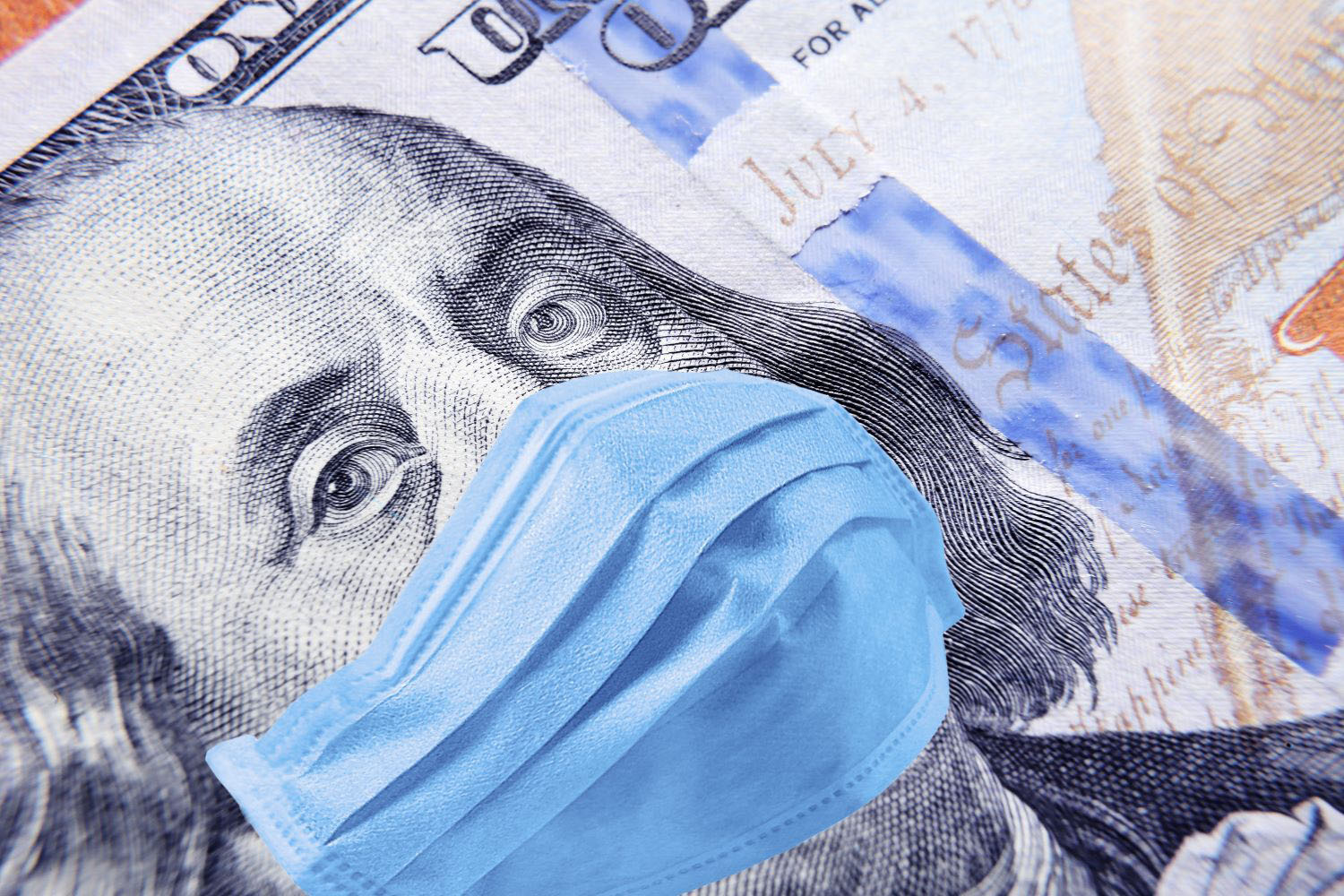Recommended

Event
The Russian invasion of Ukraine has created a historic lacuna for European security. A neglected dimension of the wider security conversation is the war’s consequences for global health security. We map these emerging threats from food insecurity to radiation risks, and call for the immediate development of effective strategies in the ongoing conflict and as a means to forge a durable recovery.
“Health security” refers to the concept that public health threats that start “locally” are able to produce global harms, either as a function of their cross-border mobility in the case of infectious diseases, or due to the potential for discrete threat entities such as chemical, biological, and radio-nuclear agents to cause large-scale population morbidity and mortality. Wider understandings of the concept acknowledge that health security threats also arise from the interrelatedness of critical structural and social elements, which also affect regional and international public health. For example, security threats related to energy access, food security, cyber-security or environmental pollution can also emerge from external sources and affect outcomes.
Although Russia invaded Ukraine in February 2022, in reality the war significantly pre-dates the events of February 24 and has had an erosive impact on Ukraine’s healthcare system for some time. Armed conflict in the Donbas and Luhansk regions of Ukraine has been taking place between Russian-backed separatists and Ukrainian security forces since 2014. The Russian invasion of Ukraine marks the first European state-on-state conflict since the Balkans war ended in 1999, and the first time that members of the UN Security Council have so closely participated in opposing sides of a conflict—Russia directly, and the US, UK, and other NATO and non-NATO allies by proxy. At the time of the invasion, Ukrainian health security was already in a poor state; Ukraine was experiencing its worst wave of COVID-19 alongside a severe outbreak of polio amongst its children, and was grappling with significant burdens of complex non-communicable diseases such as cancer that had been growing since 2014.
The sanctions package directed at the Russian Federation is beginning to bite. However, retaliation from Russia has seen Bulgaria and Poland cut off from its natural gas supplies, with further threats directed towards Germany, Austria, and other European countries over the upcoming winter. The threat of the energy crisis for European countries—whether via disrupted supply chains, rising prices and growing instability in the business environment—will inevitably translate into, at the very least, a stagnation of public health reforms and progressive universalism, particularly where defence spending increases. Further strictures on energy supply will only continue to increase prices and drive a deterioration in the social determinants of health through knock-on effects such as the loss of economic opportunities, impaired access to adequate nutrition, deteriorating housing conditions, worsening household financial security, and reduced availability of healthcare.
Food and health security
Rising food prices are a critical threat to population health, which is compounded by the already enormous damage to Ukraine’s agricultural sector, a major global agrifood producer. The damage to this sector is already estimated at $4.3 billion, with projections suggesting the after-effects could trigger the greatest global food crisis since the Second World War. The loss of the “breadbasket of Europe” is catastrophic to global health security—in particular, strictures on the flow of wheat supplies may drive increases in poverty and malnutrition worldwide. A grain export agreement signed by Russia and Ukraine on 22 July was initially threatened by Russian missile attacks in the port of Odessa. Since then UN observers have been cautiously monitoring the passage of several ships heading from Ukraine to their shipment destinations, including one to sub-Saharan Africa. But even if the supply side constraint eases, the high prices of agricultural inputs and energy mean that food bills are extraordinarily high for many countries who rely on imports for food supply, even while public revenues are tightening.
A global food crisis is a major concern for health security professionals, since precedent shows that food insecurity is regularly implicated in violence and instability, leading to long-term health crises. Academics and policymakers have recognised that the price of grain is a key factor affecting the likelihood of political unrest. The Arab Spring began following riots over food prices, and food riots have occurred in recent years in countries such as Thailand, Mozambique, Haiti, and Bangladesh. The risk of relapse into violence and conflict is serious for countries that are especially vulnerable to the downturn of Ukrainian agricultural supplies. The current turmoil in Sri Lanka is a heralding event for wider compromise of political stability at national and international scales.
Russian cyber threats to healthcare
The escalation of offensive action from the Russian Federation directed towards Ukraine and Western governments has also seen a significant rise in operations involving health and biological infrastructure. At the outset of the war, the Biden administration warned of an increased risk of healthcare cyber-targeting worldwide. The Russian government has repeatedly been tied to offensive cyber action on health services. Russia has also been waging a parallel war of online disinformation, directed in Ukraine towards two essential health security issues: vaccination and biological laboratories. Ukraine’s population is the least vaccinated against COVID-19 in Europe following years of targeted Russian disinformation focused on WHO immunisation programmes for a range of preventable diseases such as measles and polio. More recently these online information operations have singled out Ukrainian biological laboratories, alleging that US support breaches the Biological Weapons Convention. Although there are few who take these allegations seriously, they risk undermining international scientific cooperation for peaceful biological research achieved under Article X of the treaty. Russian cyber action directly threatens the integrity of health service operations, as well as the essential international treaty regimes required to support global health security.
Physical attacks on health infrastructure and the risk of radioactive contamination
Within Ukraine, domestic sectors have been reorientated to a war footing. This includes the health sector, which has been under physical attack from Russian forces whilst having to continue day-to-day service delivery. Attacks on healthcare continue to characterise Russian offensive tactics, in contravention of international humanitarian law. The WHO surveillance system for attacks on healthcare has verified over 450 attacks, highlighting the widespread use of this tactic by Russia first in Syria, and now in Ukraine. Assaults on hospitals and healthcare workers have a dual significance, producing immediate population health effects through direct death and injuries, as well as the longer-term physical degradation of health sector resources and healthworker flight. The bombing of health facilities is of particular concern in Ukraine given the risks of direct impacts on radioactive sources. Ukraine possesses extensive infrastructure for the delivery of radiotherapy treatment, for which it relies on 45 external beam, 34 brachytherapy Cobalt-60 sources, and 5 Brachytherapy Iridium-192 sources. With bans on transport of radioactive substances within Ukraine, the risks of a direct targeted missile impact could create a serious radionucleotide contamination event.
Combat-associated radiation risks are, of course, not limited to health sector infrastructure. The regional and potentially global radiation risk associated with intensifying battles close to Zaporizhzhia nuclear station, Europe’s largest nuclear power plant and “the first active nuclear power plant in a combat zone” are of grave concern to the international community. Early fighting around the Chernobyl plant raised anxieties that the Ukrainian conflict could precipitate a repeat of the 1986 global nuclear catastrophe if core plant infrastructure were damaged either by fighting, neglect, or interference with essential systems. The International Atomic Energy Authority is concerned that continued attacks on Zaporizhzhia pose a “very real risk of nuclear disaster" and has demanded access to the site to carry out inspections whilst Russia continues to resist calls to demilitarise the surrounding area.
Siphoning funds from healthcare to defence
The attritional effect of war on the Ukrainian health sector speaks to a wider issue regularly observed in conflict: the redirection of funding from healthcare and aid towards defence. Defence contributions from countries such as the UK and US have largely supported the arming of Ukraine’s military with rocket systems, anti-ship missiles and armoured vehicles. However, attention to supporting the health sector, under assault as it is, should also be an important strategic objective of the supportive Western Alliance. Similarly, as Western governments consider their own domestic defence budgets and redirect public funds into this domain, caution should be employed not to erode health and aid budgets tackling the recovery from the ongoing pandemic of COVID-19. A collective weakening of public health functions serves no strategic interest, and crucially, gains and losses in this field are summative across geographies of concern.
The health impacts of refugee movements
Finally, the effect of violence in Ukraine has already resulted in an enormous displacement of populations into neighbouring and allied nations. The political impacts of large-scale refugee movement have clearly been seen in the context of populations fleeing the Syrian war and social unrest in North Africa. Europe has recently experienced an unprecedented influx of refugees; 3.5 million claimed asylum in the EU between 2014-17. This was accompanied by a well-documented rise of right-wing nationalism and extremism which has repeatedly been linked to anti-immigrant sentiment. Such shifts influence health outcomes via a range of pathways. The first being new pressures on health services in receiving countries accommodating growing numbers of patients, with differing patterns and presentation of communicable and non-communicable diseases. Shifts in health sector function in response to refugees have been frequently co-opted by right-wing propaganda to destabilise domestic political structures and to amplify extreme populist voices. Such shifts ultimately hinder population health outcomes through the restriction of key services, as seen in countries such as Poland and Hungary, which have heavily restricted women’s access to reproductive healthcare. Although public sentiment towards Ukrainian refugees is currently broadly sympathetic, it would be shortsighted to assume that such responses will endure amidst an economic slowdown and deterioration in living standards across Europe. Anticipation of this deterioration of public sentiment should centre both the human rights imperative of supporting refugees, and focus on pan-European health sector resilience in the longer term.
Crises such as the war in Ukraine highlight the interconnectedness of the 21st Century world. The paradigm of global health security emerges from this complexity to illuminate the range of acute, chronic, and interrelated health effects of war, wherever it might occur. Current government responses to the war in Ukraine demonstrate—despite the laudable commitments to collective defence—dangerous political short-termism by failing to sufficiently integrate global health security within wider strategic and operational thinking, and instead leaving the issues as a development aid sidebar, which serves neither health security objectives nor global health and development adequately.
Disclaimer
CGD blog posts reflect the views of the authors, drawing on prior research and experience in their areas of expertise. CGD is a nonpartisan, independent organization and does not take institutional positions.




